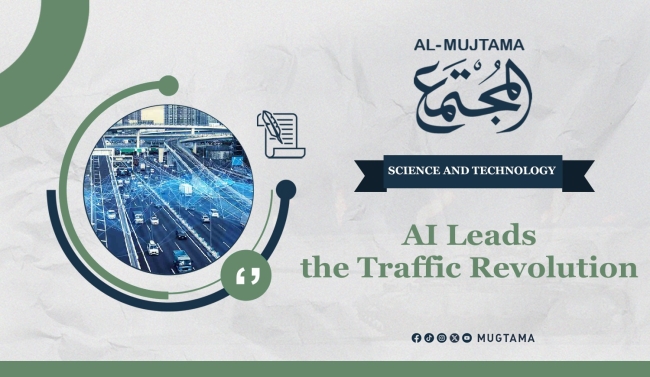With the increasing traffic congestion in major cities around the world, the need for innovative solutions to address this escalating crisis has become urgent. In this context, Artificial Intelligence (AI) emerges as a powerful tool for improving traffic management, enhancing road safety, and reducing accidents. Advanced algorithms and Machine Learning techniques can process vast amounts of real-time data, revolutionizing the way we manage traffic.
Technologies Used in Traffic Management
AI-based traffic management systems utilize a combination of sensing technologies, cameras, and GPS systems to analyze real-time traffic flow. By analyzing this data, these systems can predict congestion hotspots and dynamically adjust traffic signals to improve vehicle flow.
Case Study: Los Angeles’ Experience
The city of Los Angeles in the United States has demonstrated the effectiveness of AI in managing traffic. A smart system was installed at 4,500 intersections, reducing travel time by 20% and increasing fire truck response speed by 69%. Additionally, public transport schedules were better organized, reflecting greater efficiency in traffic management, according to the tech platform Gadgets 360.
Benefits of AI in Traffic Management
– Improved Traffic Flow: Adjusting traffic light timing based on real-time data ensures smoother vehicle movement and reduces congestion.
– Reduced Travel Time: By minimizing stops at red lights, travel durations decrease, positively impacting individuals' daily lives.
– Enhanced Traffic Safety: Predictive analytics technologies can forecast potential accident locations, enabling timely interventions.
– Fuel Savings and Emissions Reduction: Optimized traffic flow reduces fuel consumption, contributing to lower carbon emissions.
AI in Traffic Systems in Kuwait
The Kuwaiti Ministry of Interior, represented by the Traffic Sector, announced the installation of smart cameras to monitor violations such as not wearing seat belts and using mobile phones while driving. This initiative is part of a comprehensive strategy aimed at enhancing road safety and increasing adherence to traffic laws. The AI-powered system ensures accurate detection of violations, improving driver compliance and reducing traffic accidents, making roads safer.
The Future of AI in Traffic Systems
Researchers from the Massachusetts Institute of Technology (MIT) have affirmed that AI will play a crucial role in mitigating traffic chaos. Through Machine Learning technologies, vehicles will be able to automatically adjust their speeds to avoid stopping at red lights, reducing stress and preventing accidents related to signal violations. This innovation points to a more organized and safer future for drivers, according to Gadgets 360.
Global and local applications prove that AI is an effective tool for improving traffic management, enhancing safety, reducing emissions, and achieving greater economic efficiency. As the adoption of these technologies expands, we look forward to smarter, more sustainable cities where transportation becomes easier and safer.
-------------------------------------------------------------


